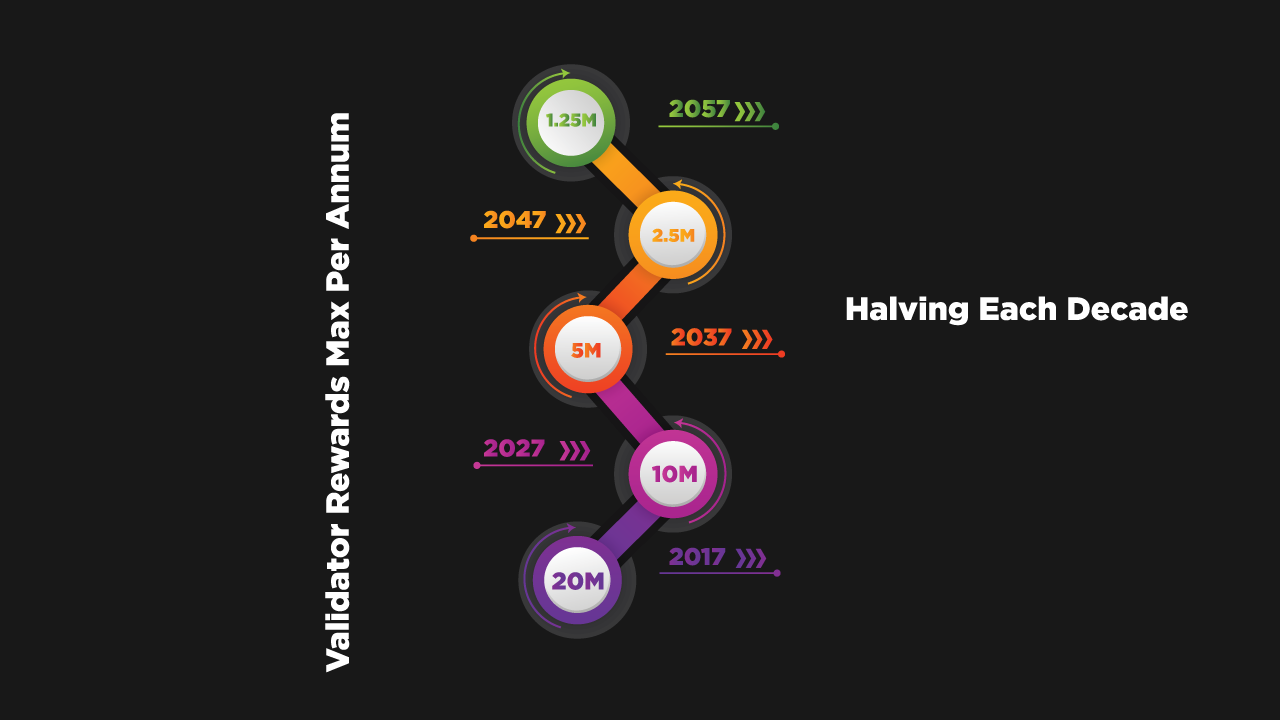Understanding Inflation and Halving
Inflation refers to the increase in the supply of tokens or coins over time, often as a result of mining or staking activities. Halving is a programmed reduction in block rewards given to validators or miners, designed to control the rate of inflation within a blockchain network. By reducing the rewards periodically, the total supply of tokens is managed more sustainably.
Pecu Novus Inflation and Halving
Halving Schedule
-
Initiation: The halving schedule for Pecu Novus began in 2017.
-
Frequency: Every decade, the Pecu Novus Network will undergo a halving event.
-
Next Halving: The first halving is scheduled to occur in 2027.

Reward Distribution
-
Current Distribution: Through 2027, the Pecu Novus Network will distribute a maximum of 20 million PECU tokens annually to validators.
-
Future Reduction: Starting in 2027, the rewards will be reduced by half every decade. This means that from 2027 to 2037, the maximum annual distribution will be 10 million PECU, and so on.
Benefits of Halving
-
Inflation Control: Halving helps manage and control inflation within the Pecu Novus ecosystem, ensuring that the increase in token supply is gradual and sustainable.
-
Token Scarcity: By reducing the rate at which new tokens are introduced into the market, halving contributes to the scarcity of PECU tokens, potentially increasing their value over time.
-
Economic Incentives: This predictable and structured approach provides validators and other participants with a clear understanding of future reward schedules, aligning their economic incentives with the long-term sustainability goals of the network.